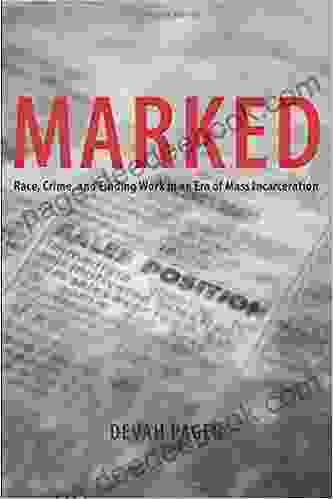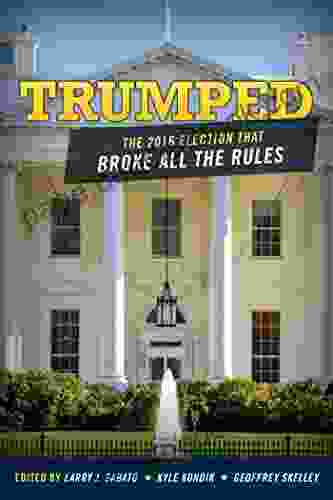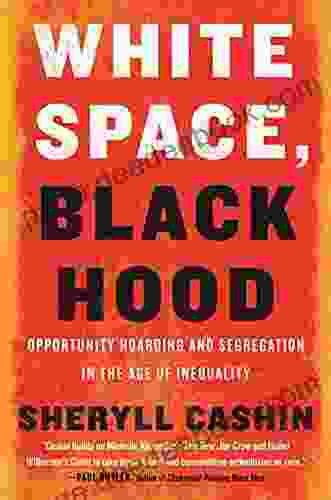Race Crime and the Maze of Employment in the Era of Mass Incarceration

In 2010, the United States had the highest incarceration rate in the world, with over 2.3 million people behind bars. This staggering number disproportionately affects communities of color, with African Americans making up 34% of the prison population despite only comprising 13% of the U.S. population.
The consequences of mass incarceration extend far beyond the prison walls. One of the most significant challenges faced by formerly incarcerated individuals is finding work. In an era where employers routinely conduct criminal background checks, a criminal record can be an insurmountable barrier to employment.
4.6 out of 5
| Language | : | English |
| File size | : | 2691 KB |
| Text-to-Speech | : | Enabled |
| Screen Reader | : | Supported |
| Word Wise | : | Enabled |
| Print length | : | 248 pages |
| Lending | : | Enabled |
The Impact of Race on Employment Outcomes
The impact of race on employment outcomes is undeniable. Studies have consistently shown that African American and Latino job seekers are less likely to be hired than white job seekers with similar qualifications, even when they have no criminal record.
This disparity is even more pronounced for formerly incarcerated individuals. A study by the Sentencing Project found that African Americans with a criminal record are less than half as likely to be hired as white job seekers with no criminal record.
Barriers to Employment for Formerly Incarcerated Individuals
There are a number of factors that contribute to the high unemployment rate among formerly incarcerated individuals. These include:
- Criminal background checks: As mentioned above, employers routinely conduct criminal background checks, and a criminal record can be an automatic disqualifier for a job.
- Lack of job skills: Many formerly incarcerated individuals lack the job skills necessary to secure employment. This is due to a number of factors, including limited education and work experience.
- Discrimination: Formerly incarcerated individuals often face discrimination from employers, even if they have a clean criminal record. This discrimination can be overt, such as refusing to hire someone because they have a criminal record, or it can be more subtle, such as giving preference to white job seekers over equally qualified African American or Latino job seekers.
The Consequences of Unemployment
Unemployment has a number of negative consequences for formerly incarcerated individuals and their families. These consequences include:
- Increased poverty: Unemployment is a major cause of poverty, and formerly incarcerated individuals are more likely to be poor than the general population.
- Homelessness: Unemployment can lead to homelessness, as formerly incarcerated individuals may be unable to afford housing.
- Recidivism: Unemployment is a major risk factor for recidivism, as formerly incarcerated individuals who are unable to find work are more likely to return to crime.
Solutions to the Problem
There are a number of things that can be done to address the problem of unemployment among formerly incarcerated individuals. These include:
- Banning the box: "Ban the box" laws prohibit employers from asking job applicants about their criminal history on initial job applications. This gives formerly incarcerated individuals a fair chance to compete for jobs without being automatically disqualified.
- Providing job training: Job training programs can help formerly incarcerated individuals develop the skills they need to secure employment.
- Enacting anti-discrimination laws: Anti-discrimination laws can protect formerly incarcerated individuals from discrimination in employment.
- Changing attitudes: It is important to change attitudes towards formerly incarcerated individuals. They should be given a second chance to rebuild their lives and contribute to society.
By taking these steps, we can help to break the cycle of mass incarceration and unemployment. We can create a more just and equitable society for all.
Additional Resources
- The Sentencing Project
- The American Civil Liberties Union
- The National Association for the Advancement of Colored People
4.6 out of 5
| Language | : | English |
| File size | : | 2691 KB |
| Text-to-Speech | : | Enabled |
| Screen Reader | : | Supported |
| Word Wise | : | Enabled |
| Print length | : | 248 pages |
| Lending | : | Enabled |
Do you want to contribute by writing guest posts on this blog?
Please contact us and send us a resume of previous articles that you have written.
 Book
Book Novel
Novel Page
Page Chapter
Chapter Text
Text Genre
Genre Reader
Reader Paperback
Paperback Magazine
Magazine Newspaper
Newspaper Paragraph
Paragraph Sentence
Sentence Shelf
Shelf Bibliography
Bibliography Foreword
Foreword Preface
Preface Annotation
Annotation Scroll
Scroll Bestseller
Bestseller Classics
Classics Library card
Library card Biography
Biography Memoir
Memoir Encyclopedia
Encyclopedia Narrator
Narrator Character
Character Resolution
Resolution Librarian
Librarian Catalog
Catalog Borrowing
Borrowing Stacks
Stacks Archives
Archives Periodicals
Periodicals Study
Study Reserve
Reserve Journals
Journals Rare Books
Rare Books Special Collections
Special Collections Storytelling
Storytelling Theory
Theory Ronald Findlay
Ronald Findlay Eric B Barnes
Eric B Barnes Craig Murray
Craig Murray Nicole Hennig
Nicole Hennig Rhys Tate
Rhys Tate Chris Blake
Chris Blake Brad Jones
Brad Jones Michael Sobotta
Michael Sobotta Doogie Horner
Doogie Horner Adolph Barr
Adolph Barr Dewar Macleod
Dewar Macleod Simon Reich
Simon Reich Erika Napoletano
Erika Napoletano Sophie Kinsella
Sophie Kinsella Nancy Pelosi
Nancy Pelosi David Sainsbury
David Sainsbury Mark Bradbeer
Mark Bradbeer Michael Andreas Jacobi
Michael Andreas Jacobi Uncle Sam
Uncle Sam Nancy O Connor
Nancy O Connor
Light bulbAdvertise smarter! Our strategic ad space ensures maximum exposure. Reserve your spot today!
 Avery SimmonsFollow ·16.2k
Avery SimmonsFollow ·16.2k Junichiro TanizakiFollow ·14.1k
Junichiro TanizakiFollow ·14.1k Alex FosterFollow ·13.6k
Alex FosterFollow ·13.6k Wayne CarterFollow ·9.6k
Wayne CarterFollow ·9.6k Braden WardFollow ·15.5k
Braden WardFollow ·15.5k Edgar Allan PoeFollow ·9.4k
Edgar Allan PoeFollow ·9.4k Fred FosterFollow ·7.1k
Fred FosterFollow ·7.1k Craig BlairFollow ·14.1k
Craig BlairFollow ·14.1k

 Chandler Ward
Chandler WardEvery Cowgirl Loves Rodeo: A Western Adventure
Every Cowgirl...
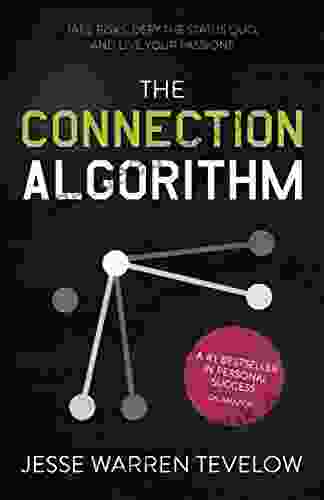
 Dylan Mitchell
Dylan MitchellThe Connection Algorithm: Take Risks Defy The Status Quo...
In the tapestry of life, we are often...
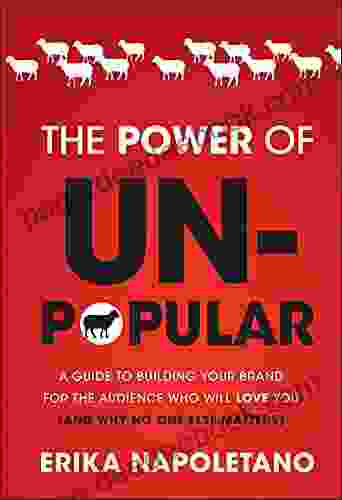
 Terence Nelson
Terence NelsonThe Ultimate Guide to Building a Beloved Brand: Unlocking...
In today's fiercely competitive market,...

 Warren Bell
Warren BellGoverning Metropolitan Regions in the 21st Century:...
Metropolitan regions are home to a majority of...
4.6 out of 5
| Language | : | English |
| File size | : | 2691 KB |
| Text-to-Speech | : | Enabled |
| Screen Reader | : | Supported |
| Word Wise | : | Enabled |
| Print length | : | 248 pages |
| Lending | : | Enabled |


